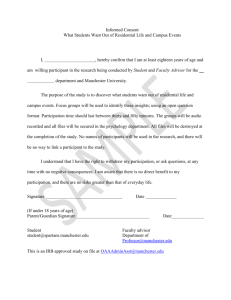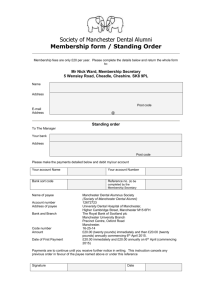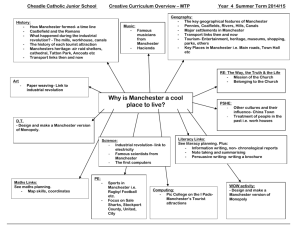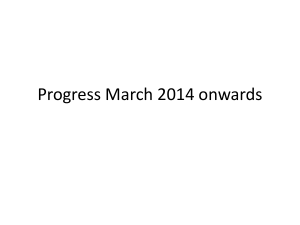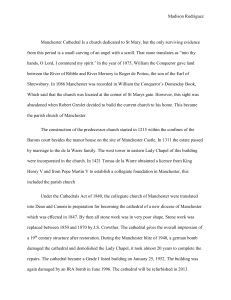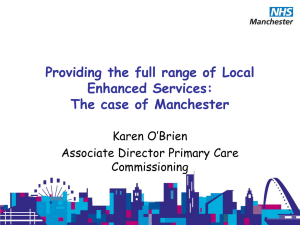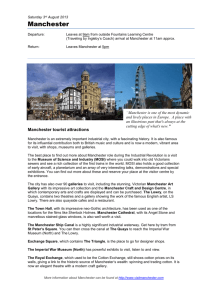Advice for Academic Advisors
advertisement
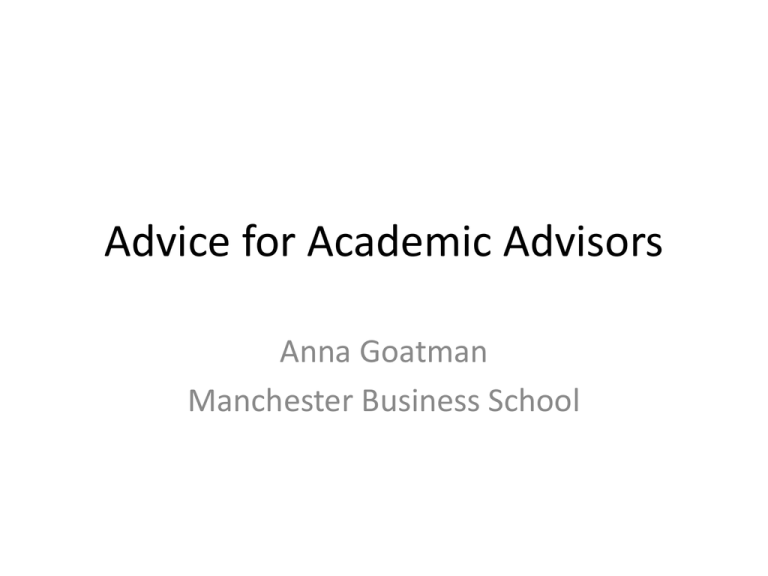
Advice for Academic Advisors Anna Goatman Manchester Business School Academic advising is intended to stimulate a learning culture that enables students to achieve their full potential and result in graduates who will be highly competitive in the knowledge economy. Faculty of Humanities, University of Manchester Academic Advisor versus Personal Tutor What academic advisors are not • Personal counsellors • A replacement for course coordinators • A proof reading service • A 24/7 emergency service What academic advising covers Submission of coursework Examinations University and programme degree regulations Guidance on academic choice Availability of options “I didn’t know which courses to choose, so I looked online at the course coordinators pictures to see who looked the most friendly.” (Second year student) Deadlines for option choices Sources of information Prerequisites Implications of choice Target setting Aims for university Academic achievement Identification of opportunities Gaining experience Monitoring performance and engagement Reviewing exam performance Reviewing coursework performance Discussing attendance, preparation and participation Explaining the academic marking system “I cried all night, I don’t know how I’m going to tell my parents, I only got an average of 68%” (First year student) Encourage reflection Personal development plan (PDP)/ Portfolio Encourages students to take responsibility for their own development Helps identify strengths, weakness and opportunities Good preparation for job applications “I feel like an alien on a foreign planet” (First year student) “I went to the library and there was, like, LOADS of books” (First year student) “I’m not very good at accounting and finance, but my Dad really wants me to do it.” (Second year student) “I need to leave. This course really isn’t for me. The careers teacher at school told me to do it. I wanted to do an art degree, but she said I’d never get a job in art, so I should do management instead”. (First year student) Academic advising is a two-way process Some students (and staff) engage more It’s not about knowing everything, it’s about knowing who to ask. Useful resources • Academic Advisor Toolkit – http://www.humanities.manchester.ac.uk/tandl/resources/academic_advisers/ • Faculty of humanities study skills website – http://www.humanities.manchester.ac.uk/studyskills/ • University language centre – http://www.langcent.manchester.ac.uk • Counselling service – http://www.studentnet.manchester.ac.uk/counselling/ • Disability Support Office (DSO) – http://www.studentnet.manchester.ac.uk/counselling/ • Students’ Union – http://manchesterstudentsunion.com • Careers service – http://www.careers.manchester.ac.uk • My Manchester (the student system can be accessed here) – https://my.manchester.ac.uk/ Benefits of being and Academic Advisor The opportunity to work with individuals and small groups A chance to get to know the students and build a relationship that will last for the duration of their degree programme A reminder about what it is like to be a student. Being an academic advisor may formally end at graduation. However, some students need you most once they have left. Success is the ability to go from one failure to another with no loss of enthusiasm (Churchill)
